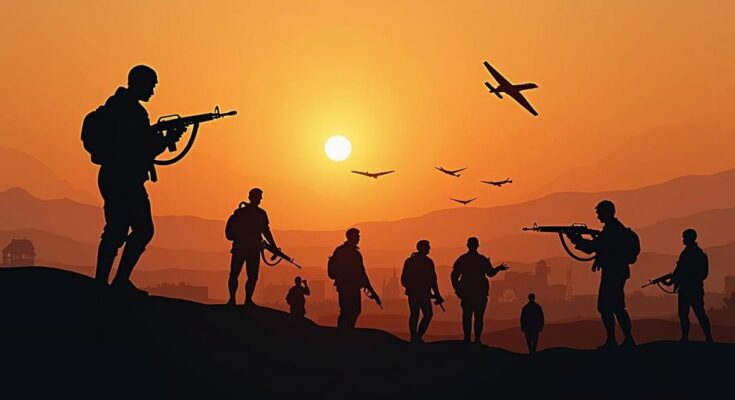After Israel’s reported elimination of Hezbollah chief Hassan Nasrallah, Iran faces limited retaliation options, compelled to navigate a fraught geopolitical landscape. Analysts warn that any aggressive response by Tehran could trigger an extensive conflict, jeopardizing its strategic interests in the region and straining alliances.
Iran finds itself in a precarious position following recent escalations involving Hezbollah and Israel, particularly after the reported death of Hezbollah’s leader, Hassan Nasrallah. Iran’s Supreme Leader, Ayatollah Ali Khamenei, expressed solidarity with Hezbollah, emphasizing that their allies support the group amidst the turmoil. This response follows the Israeli Defense Forces’ (IDF) assertion that it had successfully targeted Nasrallah in an airstrike, alongside other significant figures such as Ahmed Muhammad Fahd, a leader within Hamas’s Syrian operations, and Brigadier General Abbas Nilforooshan of the Islamic Revolutionary Guard Corps (IRGC). Khamenei’s statements highlighted the broader support from various Resistance forces in the region. However, regional analysts assert that Iran faces limited retaliation options without inciting further conflict. Hamidreza Azizi, a scholar at the German Institute for International and Security Affairs, indicated that Iran’s capacity to deliver a decisive response has diminished following the setbacks suffered by Hezbollah. Historically, Iran had committed to avenging the killing of Hamas leader Ismail Haniyeh, but Iran’s strategic calculations have shifted in light of Hezbollah’s current vulnerabilities. Despite Iran’s previous missile and drone threats aimed at Israel, these attempts have yielded little deterrent effect. Azizi noted that Iran is now confronted with the stark reality that any military action could potentially escalate into a broader war, which Iran is keen to avoid. Potential strategies for Tehran include entering into war with the associated risks of substantial Israeli retaliation, waiting for international mediations in the region, or seeking to mobilize allied factions such as the Houthis and Syrian militias, albeit with challenges in coordination following Nasrallah’s demise. As Hezbollah’s alliance with Iran deteriorates, the implications for the Syrian regime of Bashar al-Assad, a key ally of Tehran, may lead to a reassessment of relationships with Iranian influences as rebel threats intensify. The necessity for Tehran to navigate this turbulent situation highlights the strategic complexities and dire options now confronted by Iranian leadership.
The article discusses the challenges faced by Iran following the reported death of Hezbollah leader Hassan Nasrallah, amid escalating tensions with Israel. The dynamics between Iran, its proxies such as Hezbollah and Hamas, and Israel are complex and marked by recent military actions. The assassination of key figures in the region underscores the ongoing conflict and the broader strategic interests at play, namely Iran’s influence through its various proxies.
In conclusion, Iran is at a crossroads due to the recent fatal strikes against Hezbollah leadership, which limits its options for retaliation. The potential for a significant military response is fraught with risk, and Iran’s past threats have not effectively deterred Israeli action. As regional dynamics shift, the need for Iran to recalibrate its strategies may influence its relations with both allies and adversaries.
Original Source: www.newsweek.com




